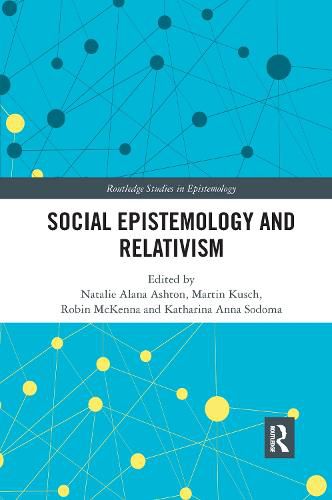Readings Newsletter
Become a Readings Member to make your shopping experience even easier.
Sign in or sign up for free!
You’re not far away from qualifying for FREE standard shipping within Australia
You’ve qualified for FREE standard shipping within Australia
The cart is loading…






This is the first book to explore the connections and interactions between social epistemology and epistemic relativism. The essays in the volume are organized around three distinct philosophical approaches to this topic: 1) foundational questions concerning deep disagreement, the variability of epistemic norms, and the relationship between relativism and reliabilism; 2) the role of relativistic themes in feminist social epistemology; and 3) the relationship between the sociology of knowledge, philosophy of science, and social epistemology.
Recent trends in social epistemology seek to rectify earlier work that conceptualized cognitive achievements primarily on the level of isolated individuals. Relativism insists that epistemic judgements or beliefs are justified or unjustified only relative to systems of standards-there is not neutral way of adjudicating between them. By bringing together these two strands of epistemology, this volume offers unique perspectives on a number of central epistemological questions.
Social Epistemology and Relativism will be of interest to researchers working in epistemology, feminist philosophy, and the sociology of knowledge.
$9.00 standard shipping within Australia
FREE standard shipping within Australia for orders over $100.00
Express & International shipping calculated at checkout
This is the first book to explore the connections and interactions between social epistemology and epistemic relativism. The essays in the volume are organized around three distinct philosophical approaches to this topic: 1) foundational questions concerning deep disagreement, the variability of epistemic norms, and the relationship between relativism and reliabilism; 2) the role of relativistic themes in feminist social epistemology; and 3) the relationship between the sociology of knowledge, philosophy of science, and social epistemology.
Recent trends in social epistemology seek to rectify earlier work that conceptualized cognitive achievements primarily on the level of isolated individuals. Relativism insists that epistemic judgements or beliefs are justified or unjustified only relative to systems of standards-there is not neutral way of adjudicating between them. By bringing together these two strands of epistemology, this volume offers unique perspectives on a number of central epistemological questions.
Social Epistemology and Relativism will be of interest to researchers working in epistemology, feminist philosophy, and the sociology of knowledge.